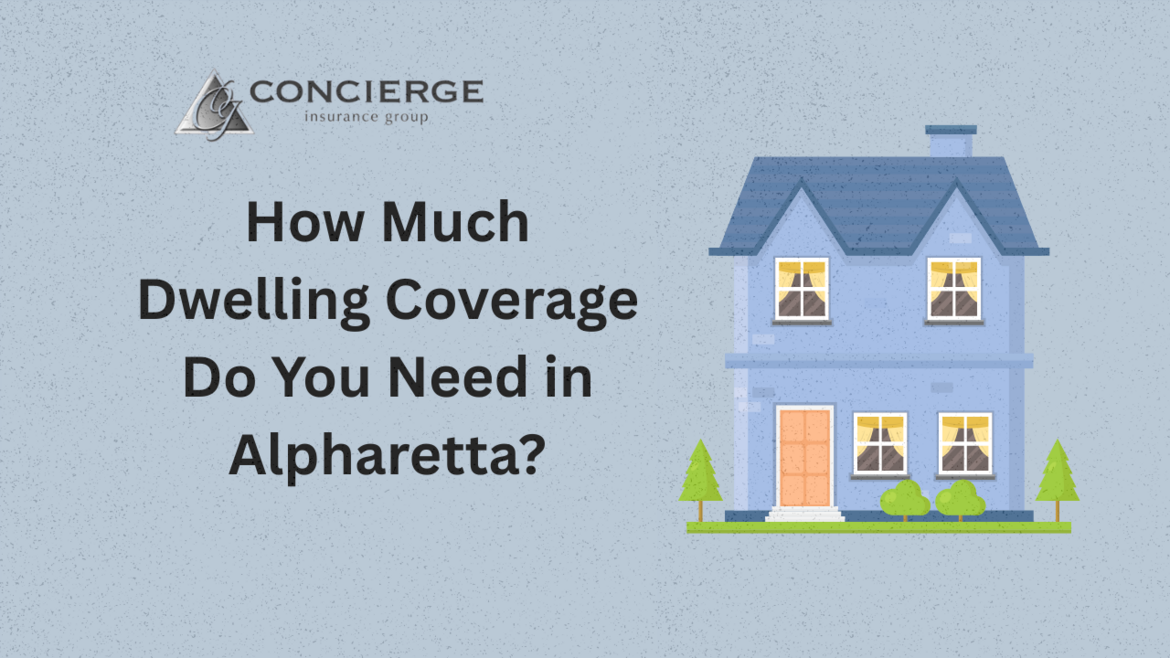
Could your home insurance policy leave you bankrupt after a disaster? What if everything you thought you knew about dwelling coverage in Alpharetta is wrong?
In one of Georgia’s most affluent and rapidly growing cities, 74% of homeowners are dangerously underinsured—and most don’t realize it until it’s too late. If you’ve relied on market value or standard formulas to determine your home insurance limits, you could be exposing yourself to devastating financial risk.
This article will uncover the hidden complexities of dwelling coverage in Alpharetta, from how insurance companies calculate replacement cost to why standard advice like the “80% rule” can backfire catastrophically.
What you’ll learn:
-
Why Alpharetta’s construction boom creates misleading coverage estimates
-
How labor shortages and climate risks are inflating rebuilding costs
-
The truth behind coinsurance penalties and why they matter
-
What real Georgia homeowners are actually paying for protection
-
How to secure accurate coverage using appraisals and policy upgrades
Alpharetta’s Insurance Mirage: Why Market Value Misleads Homeowners
At first glance, insuring your Alpharetta home seems straightforward. Median home value? $717,656. Just cover that, right?
Wrong.
Home insurance is based on replacement cost, not market value—and the two are often wildly different. Replacement cost is what it would take to rebuild your home from the ground up, using current materials, labor, and code requirements. In a city where construction costs can hit $150–$270 per square foot, that’s no small figure .
The McMansion Trap: How Alpharetta’s Growth Skews Insurance Tools
As Alpharetta morphs into Georgia’s version of Silicon Valley, high-income professionals are flocking to large tract homes (LTHs). These spacious builds may look expensive—but standard insurance software struggles to price them accurately.
What the Tools Get Wrong
Tools like CoreLogic’s RCT Express and Xactimate often overvalue or undervalue Alpharetta homes due to:
-
Generic data inputs
-
Missed customizations (like millwork or high-end finishes)
-
Inability to reflect real-time labor shortages
The result? Homeowners end up either overpaying or dangerously underinsuring their homes.
The Labor Shortage Crisis Driving Up Replacement Costs
91% of Georgia construction firms report labor shortages, and Alpharetta is no exception. With only 54 workers for every 100 jobs, rebuilding costs can skyrocket, especially after storms or fires damage multiple homes .
Example:
After a tornado damaged 56 homes in nearby Gwinnett County, contractor costs tripled due to demand spikes.
Why the "80% Rule" Is Financially Dangerous
Insuring your home for 80% of its replacement value could trigger massive penalties.
Insurance carriers often push the “80% rule,” suggesting it as a safe threshold. But reality tells a different story—especially in Georgia.
Here’s a real regional scenario to consider:
After Hurricane Helene swept through parts of western North Carolina and Upstate South Carolina—including areas like Greenville—homeowners faced rebuilding bids far above what their policies covered. Many had based their coverage on outdated or market-based estimates. As costs surged, homeowners who were insured at only 70–80% of replacement value found themselves paying tens—or even hundreds—of thousands out-of-pocket to meet code requirements and labor costs.
Let’s break it down with a real-world-style example:
-
Replacement cost: $500,000
-
You insure for: $350,000 (70%)
-
Fire damage claim: $75,000
-
Claim payout (with coinsurance penalty): $65,625
-
Your out-of-pocket: $9,375 + deductible
Even well-meaning homeowners can be caught short if their coverage doesn’t keep pace with true rebuilding costs.
What Georgia Homeowners Really Pay for Coverage
Using Georgia-wide data as a proxy for Alpharetta, here’s what real policyholders are paying annually:
Coverage Cost Ranges:
-
Basic Coverage: $1,200–$1,800
-
Comprehensive: $2,400–$4,200
-
High-Value Homes: $4,200–$9,400+
Why It Varies:
-
Home value and replacement cost
-
Location-specific risks (like Alpharetta’s tornado index of 224.83)
-
Credit score, claims history, and coverage endorsements
For Alpharetta: Expect to land in the middle to upper range given home values and construction costs.
Coverage Options You’ve Never Heard Of (But Desperately Need)
Most agents only discuss basic replacement cost—but here’s what really matters:
1. Extended Replacement Cost
Adds 25–50% buffer above your policy limit. Helpful—but only if your base estimate is accurate.
2. Guaranteed Replacement Cost
Covers 100% of actual rebuild costs, even if they exceed your policy limit. Only a few carriers offer it, and it’s critical for high-value homes.
Professional Appraisals: The Secret Weapon Against Underinsurance
Insurance software can’t beat on-the-ground appraisers who understand:
-
Local permitting and code upgrades
-
Soil and access complications
-
Contractor availability and labor rates
Cost: $300–$500
Potential savings: Hundreds of thousands in uncovered claims
Climate Change: The New Alpharetta Risk Factor
Georgia’s evolving climate has intensified storms and rainfall. Combined with Alpharetta’s dense tree canopy and rapid development, this creates massive new risks for property damage.
Insurance impact: Premiums have risen 70% nationally since 2021, and Georgia's fraud rates only amplify the cost pressure.
The Alpharetta Action Plan: How to Protect Your Home
1. Audit Your Policy Now
-
Request your insurer’s replacement cost estimate
-
Compare it to local contractor quotes
-
Check your coinsurance clause
2. Upgrade Your Coverage
-
Add extended or guaranteed replacement cost
-
Include ordinance/law coverage for code compliance
-
Review inflation guard endorsements annually
3. Bring in Experts
-
Hire a certified appraiser every 3–5 years
-
Consult local builders
-
Choose agents experienced with high-value homes
4. Budget Realistically
-
Homes with $400K–$600K replacement cost: $2,500–$4,500/year
-
$600K–$900K: $4,500–$7,500/year
-
$900K+: $7,500–$12,000+/year
Final Word: Don’t Leave Your Future to Algorithms
You bought a beautiful home in a booming market. But Alpharetta’s rapid growth, construction complexity, and climate risk mean your insurance must go far beyond the basics.
If you rely on outdated rules or automated tools, you could end up like the 74% of homeowners left financially exposed when disaster strikes.
Now that you understand what proper dwelling coverage in Alpharetta truly requires, your next step is to speak with an insurance expert who specializes in high-value Georgia homes. You can’t afford to guess when your biggest investment is on the line.

